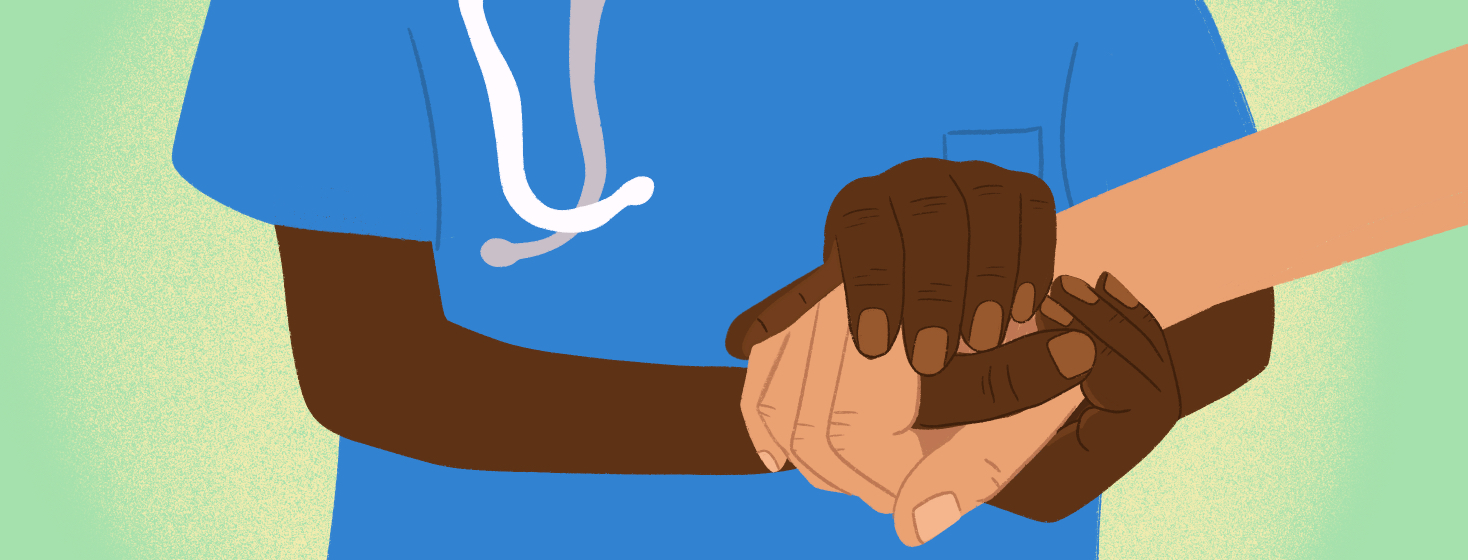Ode to Phil
Do you ever encounter someone who restores your faith in humanity? I did. But, in my case, he restored my lagging trust in the medical profession.
Grateful to my doctors
Don’t get me wrong. I’m grateful to the doctors, particularly my CML specialist, who have comprised the team helping to keep me alive for the past seven years with blood cancer.
I’m also indebted to the scientists, researchers, and doctors who developed tyrosine kinase inhibitors, (TKIs) the drugs that help prolong the lives of leukemia patients like me. That’s not who I’m talking about.
Respect had taken a nose-dive
Unfortunately, my Susie Sunshine attitude toward medical professionals has taken a nose-dive over the past several months. Granted, I’ve had a litany of issues where I’ve had to see people “filling in,” for the A-team. And COVID seems to have everyone’s nerves frayed.
However, it is no excuse not to listen to patients. See “Making Yourself Heard.”
The abbreviated version: I’ve developed venous stasis, resulting in purplish, swollen feet. It was initially misdiagnosed as cellulitis. I was given antibiotics to which I subsequently had an allergic reaction.
Talk to the hand
I think the latter situation could have been avoided if the doctor on duty and in a rush that day to go home hadn’t thrown me the “talk to the hand,” signal when I tried to tell her about my many allergies and what I had successfully taken for “cellulitis,” in the past.
Impatient fill-in providers
During other encounters over the past several weeks, I’ve been met with impatient, abrupt, eye-rolling type practitioners who have shattered my confidence that there is anyone out there that wants to deal with a CML patient with a host of other medical problems.
However, shout out to the “fill-in,” doc who at one point discovered I had dangerously low B-12 levels (something that hadn’t been checked in several years). She set me up with a once-per-week shot schedule initially.
Not everyone! Meet Phil
I re-met Phil on the day of the first shot. He is a retired, white-haired nurse who returned to help out at my primary care practice. I found him kind, and caring and he explained things well.
For my second shot, I had a female nurse who rushed me into a tiny cubicle, jabbed my arm, and then watched along with me while a batch of pink little hives immediately broke out around the site.
I asked her if she saw them and she said, “yes.” After a second or two, she shrugged and said I probably have dry skin.
Even I know that a sudden rash near the injection site is not a random patch of dry skin appearing. But I was fed up with doctor’s appointments and I left and started driving home. In the car, I noticed that a red “rim,” was forming around my mouth. Being the allergy queen, I quickly took Benadryl with water and it cleared up within the hour.
Talk to the patient
So today, I was back with Phil and mentioned what happened with shot #2. He was visibly concerned/dismayed. He asked me if I wanted to go through with it and stay put at the center afterward so he could keep an eye on me. I agreed.
Not only did he wait about 15 minutes with me, but he also kept checking my eyes, my mouth, and my arm, asked a number of questions, brought me a glass of water, and then made me promise if anything happened later that day to come back and contact him. He also didn’t put a band-aid down, believing the glue from it could have been the culprit.
His kindness was appreciated
He also said, “For all of your shots, I want to be the one to give them.”
I replied, “For all my shots, I want you to be the one who gives them.”
Agreed.
His kindness continued. He walked me to the door and we exchanged a few more words. He advised me to ask specifically for him on my next visit. I certainly will.
I understand that COVID is making everyone feel harried and out of sorts. But, if Phil can still treat patients respectfully that way in times of stress within the profession, then so can everyone else.

Join the conversation